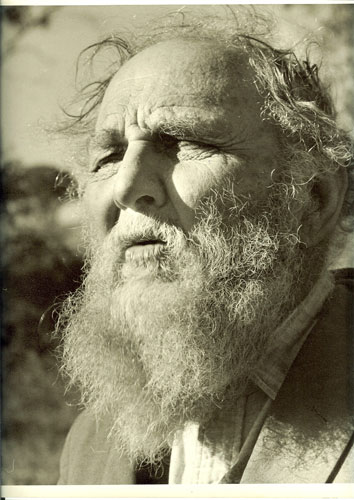Once there was a blind man named Bill. Bill was a kind person, always helpful, he
had a pretty good sense of direction, really, for being a blind person, and he
could tell people how to get anywhere.
He was generally of a friendly disposition and he loved children and
pets.
His main problem was that he didn’t know he was blind.
He strongly suspected it.
He knew he wasn’t perfect. He
made mistakes. Heck, everyone does. But he couldn’t admit that he had a problem
that no one else had. He thought that everyone
listened to the television, lost in mystery.
He thought everyone ran into poles on a regular basis when they walked
down the street. He thought that perhaps
he was a bit more clumsy than others.
But it wasn’t a big deal.
Of course, everyone who spent time with him knew. He kept his eyes closed, since they were
useless, so at first people just wondered why he kept his eyes closed. Then they realized the obvious truth, so they
figured that he was just a really independently-minded blind man. They didn’t say anything to him about
it. After all, it wasn’t their business.
All this was fine until one day Bill ran across a child who
was lost. When he would meet an adult
who needed directions, he would just tell them verbally in his even, precise tone. And the adult would get there, no
problem.
This time Bill considered that he should direct the child by
hand. After all, the child needed more
protection. So he took her by the hand
and led her down the streets and paths that he knew so well in his mind.
But he couldn’t see the ditch he ran her into.
And he didn’t see the tree that he ran her into.
He didn’t see the silent dog that bit her on the path.
When she just cried, louder and louder, he comforted her and
told her, “Don’t worry, we’ll be home soon.”
When he did take her home, she was so beaten and broken that
the child’s mother called the police and had him arrested for child abuse. When he was told of the charges, he said,
“But all I was trying to do is help.”
* * *
I am broken.
Some of my brokenness is sin, but not all of it. I have weaknesses, injuries, trauma and mental deficiencies that make me less capable, less of a loving person. It is not accurate to say "I am a sinner". Rather, I am broken. I can't accomplish all that I should. Or that I feel I should. I am broken.
So are you. And everyone we know. Which means we need to be patient with each other. We are all broken in different ways, and we don't trust the way other people are broken.
We could understand if everyone were broken in the same way. But because we are all broken differently, it is even more important to work at understanding.
But it is not enough to know that we are
broken. We must know what our brokenness
is, and how our brokenness can hurt others.
There are people all around us who are vulnerable to our weaknesses, and
we may not know how we can hurt them, unless we look into it.
We need to know ourselves.
Not just our personalities, not just our types, but we need to know how
we are broken and how we can hurt others.
We might be able to be fixed, in some ways. We may not.
But we have to take care not to be ignorant enough of our brokenness
that we hurt others.
Part of loving others is to know how we are broken.
Part of loving others is to give ourselves space so our brokenness doesn’t harm
others.
Part of loving others is to take care around people who might be especially
vulnerable to our brokenness.
It is not enough to see how my brokenness affects myself, but also others. I must be aware of those who will be hurt by my brokenness, although I never meant to hurt them.
This week I hurt people. I was wounded by trauma and I ended up wounding others because of the trauma I experienced.
I was hurt enough that I shouted at a mentally ill person, who experienced her own trauma. Later, I apologized. And she wept, openly, because I admitted my own weakness and response. That didn't heal her. But perhaps it healed part of our relationship. I hope so.
I want to be more aware of how I harm others because of the harm placed upon me.
Father, may my brokenness never cause another to be broken. Let the cycle stop here.





